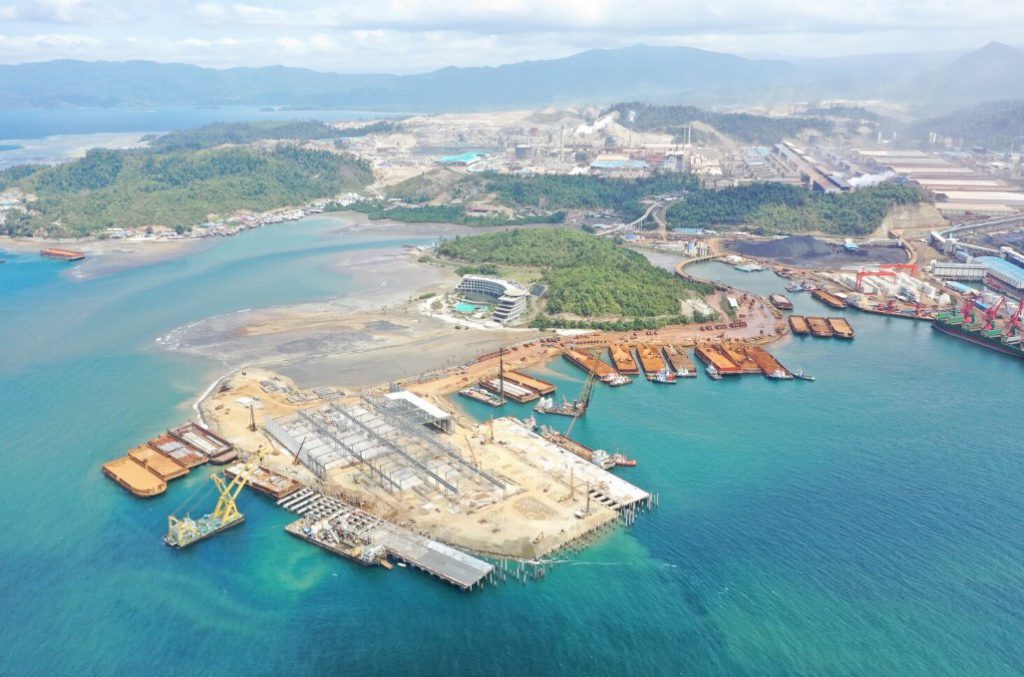Deadly landslide in Indonesia’s nickel hub signals supply risk

A deadly landslide at a top nickel-producing hub in Indonesia has heightened scrutiny of a method used to extract the battery metal from low-grade ore, spurring concern among buyers about the future of a vital source of supply.
Two workers were killed and one was left missing after the accident at the Indonesia Morowali Industrial Park on Sulawesi island last month. The incident occurred in a tailings area affiliated with Chinese producer PT QMB New Energy Materials Co. Ltd, and has forced the factory to halt almost all production, according to traders with knowledge of the situation.
Nearby peers have also had to reduce output, they said, asking not to be named as the matter is sensitive.
QMB’s biggest shareholder GEM Co. Ltd., responding to a Bloomberg query, said production was lower but attributed the drop to planned maintenance and national holidays for Eid al-Fitr, which fell in the first week of April. Park manager PT IMIP, confirming the landslide and casualties, said in a statement that there had been no disruption to output as a result, and blamed prolonged heavy rainfall.
Nickel traders in Southeast Asia and China acknowledged the short-term price impact of the stoppage would likely be limited, but said they were increasingly worried about the potential for repeated disruptions, as the use of high-pressure acid leaching, or HPAL, grows. The method allows producers to use lower-grade ore to extract metal, but comes with high volumes of waste.
Indonesia accounts for more than half the world’s output of nickel and continued outages could crimp global supply — a concern for battery makers even if the metal has been in a persistent surplus in recent years.
Indonesia’s metals sector has been plagued by a string of accidents since it began its breakneck nickel expansion a decade ago — the worst being a 2023 smelter explosion that killed 21 workers and drew reprimands from the government. With the growth of HPAL plants, a failure to properly manage associated waste could once again revive concerns over uneven environmental and safety standards.
In the last five years alone, the Southeast Asian nation has commissioned about 10 HPAL plants, of which half are already in operation, most of them thanks to Chinese investment and expertise. The nickel-extracting method is both cheaper and less carbon-intensive than others but generates nearly double the tailings, which are then dried out and compacted before being deposited at a designated site. Any breakdown in waste management is likely to disrupt normal production.
Experts have questioned whether HPAL, given the significant waste involved, can ever be used safely in the humid archipelago where torrential rain, earthquakes and landslides complicate storage efforts.
“These issues should not be treated as isolated cases in different companies. They reflect a broader industry problem,” said Putra Adhiguna, managing director at the Australia-based Energy Shift Institute. He added that with repeated incidents, supply risks are “always looming in the background”.
PT IMIP said the hub was implementing measures to improve standards and mitigate geological disaster risks in the area — one of many industrial parks spearheaded by former President Joko Widodo to accelerate manufacturing growth — using land reclamation, leveling, and reforestation.
While the exact extent of the current production loss is unclear, the people familiar with the matter said QMB — which also counts China’s Tsingshan Holding Group Co. and Guangdong Brunp Recycling Technology Co. Ltd. among its shareholders — would likely see lower output in April than in previous months given an ongoing government investigation into the accident.
The plant shipped more than 25,000 tons of nickel in the first quarter of the year, according to an emailed statement from GEM.
A spokesperson for Indonesia’s ministry of industry did not respond to messages seeking comment.
(By Alfred Cang, Annie Lee and Eddie Spence)
{{ commodity.name }}
{{ post.title }}
{{ post.date }}




Comments